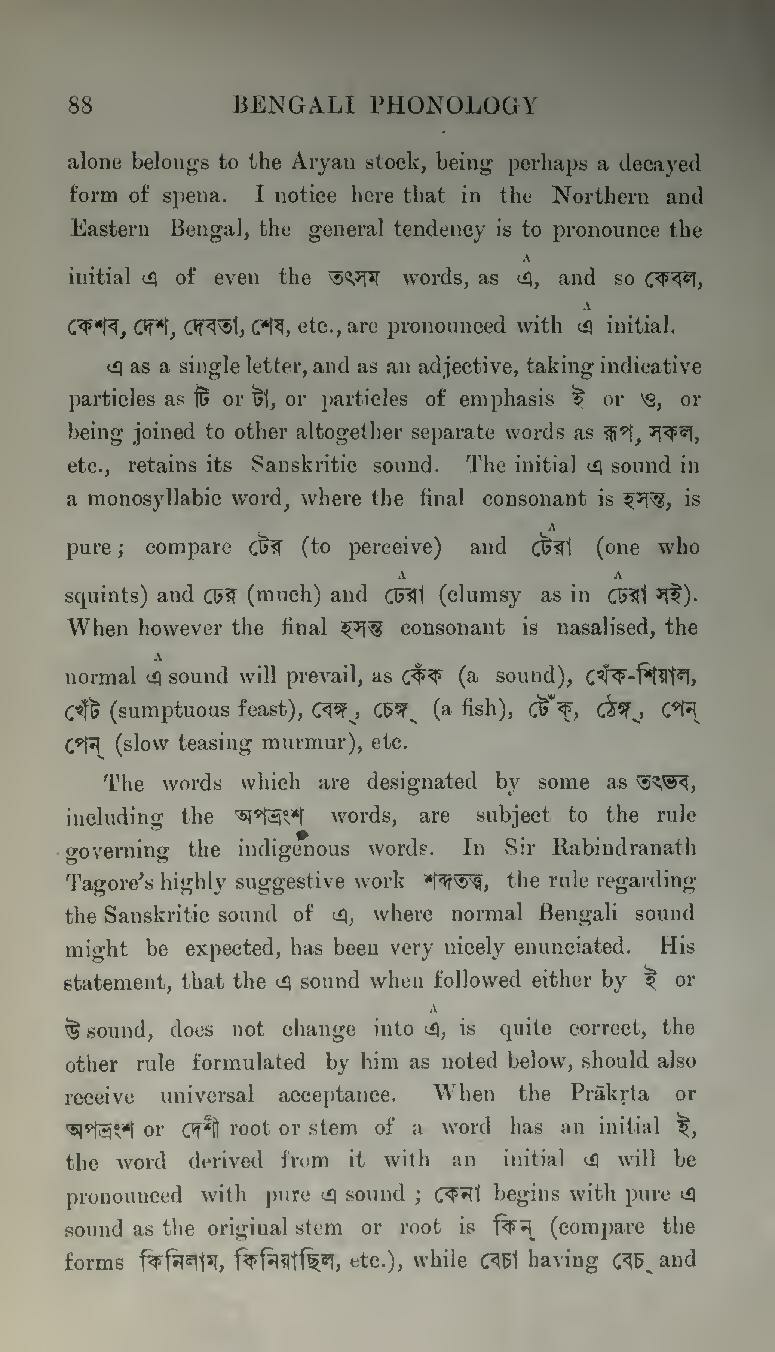alone belongs to the Aryan stock, being perhaps a decayed form of spena. I notice here that in the Northern and Eastern Bengal, the general tendency is to pronounce the initial এ of even the তৎসম words, as এ̂, and so কেবল, কেশব, দেশ, দেবতা, শেষ, etc., are pronounced with এ̂ initial.
এ as a single letter, and as an adjective, taking indicative particles as টি or টা, or particles of emphasis ই or ও, or being joined to other altogether separate words as রূপ, সকল, etc., retains its Sanskritic sound. The initial এ sound in a monosyllabic word, where the final consonant is হসন্ত, is pure; compare টের (to perceive) and টে̂রা (one who squints) and ঢের (much) and ঢে̂রা (clumsy as in ঢে̂রা সই). When however the final হসন্ত consonant is nasalised, the normal এ̂ sound will prevail, as কেঁক (a sound), খেঁক-শিয়াল, খেঁট (sumptuous feast), বেঙ্গ্, চেঙ্গ্ (a fish), টেঁক্, ঠেঙ্গ্, পেন্ পেন্ (slow teasing murmur), etc.
The words which are designated by some as তৎভব, including the অপভ্রংশ words, are subject to the rule governing the indigenous words. In Sir Rabindranath Tagore's highly suggestive work শব্দতত্ত্ব, the rule regarding the Sanskritic sound of এ, where normal Bengali sound might be expected, has been very nicely enunciated. His statement, that the এ sound when followed either by ই or উ sound, does not change into এ̂, is quite correct, the other rule formulated by him as noted below, should also receive universal acceptance. When the Prākṛta or অপভ্রংশ or দেশী root or stem of a word has an initial ই, the word derived from it with an initial এ will be pronounced with pure এ sound; কেনা begins with pure এ sound as the original stem or root is কিন্ (compare the forms কিনিলাম, কিনিয়াছিল, etc.), while বেচা having বেচ্ and
